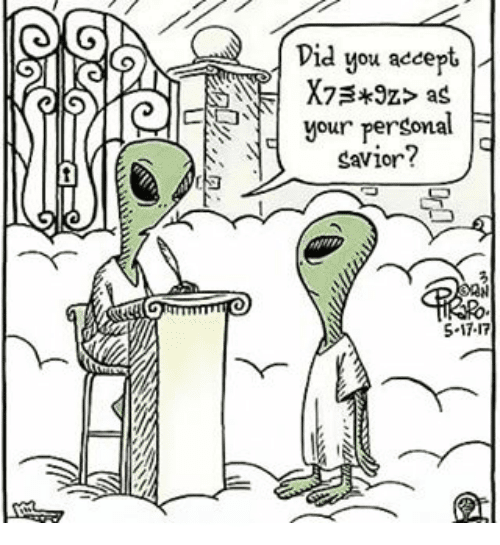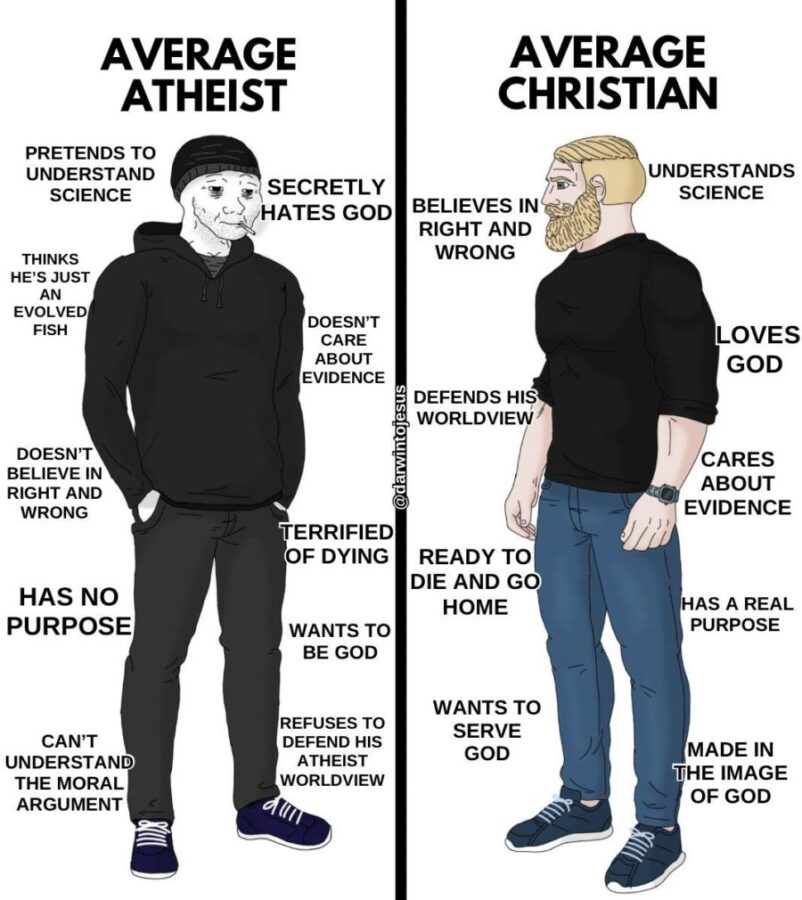
Part One — Part Two — Part Three — Part Four — Part Five
You can read my first response to “Dr.” Arv Edgeworth here. After I published Part One, Edgeworth sent Carolyn, my editor, another email. She had set Edgeworth the link to the post It’s Time to Tell the Truth: I Had an Affair. For those unaware of what I wrote in this post, here’s what I said:
It’s time for me to come clean.
I can no longer hide from my past.
The ugly, awful truth must come out.
I had an affair.
I had a mistress.
I was intimate with my lover for many, many years.
My wife and children know about the affair. I am so sorry for all the hurt and damage my illicit relationship caused. That my wife and children stood by me all these years is a wonderful testimony to their love for me. I don’t deserve it.
My mistress and I carried on for a long, long time. She would follow me wherever I moved: Ohio, Texas, Michigan. She was always right there for me.
My mistress is a lot older than I am. She is what is commonly called a cougar.
The sex was great. The only problem was I could never satisfy her. The more sex we had, the more she wanted. She was quite the nymphomaniac. I had a suspicion she was having sex with other people (she was bisexual) but it didn’t matter. What WE had was special. She treated me as if I was the ONLY one.
Over the years, we made a lot of promises to each other. We are going to do this or that, go here or go there. But neither I nor my mistress delivered on our promises.
I gave my mistress a lot of money. She deserved it, or so I thought. Yet, no matter how much money I gave her, she always wanted more. She would often tell me “Prove that you love me, Bruce.” So I would give her more money. I began to wonder if she was a prostitute and I was a john. My wife and children suffered because I gave so much money to her. I justified their destitution by telling myself that my affair was what gave me purpose and meaning in life. Without it, I might as well be dead.
I deceived myself for a long time, convinced that what my mistress and I had was real. After all, she made me feel alive. She gave me self-worth. When we were together it seemed as if time stopped and we were transported into the heavens.
One day, I began to have doubts about my affair. The sex was great, but there is more to life than sex. I certainly enjoyed the company of my mistress, and boy, she sure could cook, but I still felt quite empty when I was away from her.
I began to think about all the sacrifices I made for my mistress: all the money I gave her; the loss of a close, intimate relationship with my wife and children. Was it worth it? Since my mistress got the best of me, all my family got was leftovers. By the time I came home to them, I was too tired, too busy, and too broke to give them what they needed and deserved.
A decade or so ago, after much self-judgment and reflection, I ended the affair. I sold all of the mementos of our torrid relationship. I told my mistress that I could no longer be in a relationship with her. She didn’t even get angry, or for that matter, even care. She told me “There are plenty of other people who would love to have me in their lives. Your loss, Bruce.”
So we parted ways,
My wife and I, along with our children, are trying to rebuild our family. The damage done by this affair is incalculable. I can only hope that, with time, the wounds will be healed.
I should warn all of you about my mistress. She is always on the prowl looking for someone new to entice and bed.
Her name?
The Church.
By the way, I thought the above quoted post was some of my finest writing. Others certainly think so.
What follows is my response to his latest email.
Edgeworth replied:
I read it all the way through before, but somehow “her name” and “the Church” with spaces in between didn’t sink in. He had sex with the Church? The sex was great with the Church? Really? A bit misleading don’t you think?
He gave his mistress a lot of money, but complains he never got paid much money from the small churches he pastored, if he got paid at all?
The Church isn’t a building. If Bruce was saved he is part of that church, the body of Christ, that He bled and died for. He can never become not a part of that church. He may choose to not serve Christ but can never not be a part of the church. That relationship is everlasting.
How exactly in his mind did he have sex with “the Church”?
If Bruce neglected his family, that is on him. I have lovingly served my Lord and Savior for over 50 years, but always tried to give my family the attention they needed. But I guess it is easier for Bruce to just blame God for him neglecting his family. Maybe it eases his conscience somehow.
Neglect of his relationship with Christ is far worse.
Evidently, Edgeworth has a hard time recognizing satire — sadly, a common problem with Independent Fundamentalist Baptist (IFB) Christians. Their wooden, literalistic way of thinking keeps them from understanding satire (or jokes). Life is too short to go without satire and humor.
I gave a lot of money to the churches I pastored, even when they couldn’t or wouldn’t pay me a living wage, with benefits. (I often worked a full-time secular job while also working at the church full-time.) I pastored churches that ranged in attendance from the 50s to more than 200. Some congregations were dirt poor and couldn’t pay me a living wage. The church I pastored in southeast Ohio grew to over 200 hundred people, yet only exceeded $40,000 income one time. Most years, the church took in less than $30,000. They paid me what they could, and because I put ministry and calling before my pocketbook, I never concerned myself with what I made. In retrospect, I should have. My family suffered because I put Jesus/Church/Christian school/preaching/soulwinning first.
I take full responsibility for the choices I made in the ministry. If I had it to do it all over again, I would do it differently. That said, several of the churches I pastored could have paid me more, but they were content to give me two chickens and a $20 bill. The most I made was $26,000 a year, with the church of 200 members providing a mobile home for my family and me to live in. No insurance, no retirement plan, no benefits. The church could have easily paid me three times what they did but chose not to. Do I blame God? Of course not. The blame rests squarely with the church.
It’s good to know, according to Edgeworth’s profane theology, that I am still a Christian. Once saved, always saved, right? I’m so glad Edgeworth told me the “church is not a building.” OMG! If only I had known that. Sigh. (Why I Use the Word “Sigh.”) According to Edgeworth, I am in a marriage that I can’t get out of, even though my spouse abused and ignored me. No divorce, even if I no longer believe in the existence of the God of the Bible. No divorce, even if I mock, make fun of, and blaspheme God. No divorce, even if I deny that Jesus is the son of God, or that he was born of a virgin, worked countless miracles, died on a Roman cross, resurrected from the dead 48-72 hours later, and later ascended to Heaven, never to be seen again. Any reasonable, logical person would conclude that I am not a Christian. But, Edgeworth’s peculiar theology gets in the way of him exercising rational thinking and common sense.
I don’t blame God for anything. How could I, since he doesn’t exist? The same goes for blaming Satan — another mythical being. I am a big proponent of personal responsibility. Just ask my children and grandchildren. “Grandpa, I can’t find my shoes (wanting me to find them).” They know I will say, “Who had them last?” Personal responsibility training starts young. To the degree that I am culpable, I accept full responsibility. However, I refuse to let churches and individual Christians off the hook for their shitty, unchristian behavior. When people complain about how I have portrayed them in my writing, I tell them, “You should have treated me better.” 🙂 Want to be well thought of? Act accordingly.
I never had “literal” sex with God. Get it in your head, Arv, it’s satire. Now, if you want to know if I ever made love to my partner anywhere on church property — wink, wink, I ain’t telling 🙂 Oh, those were the days!
Edgeworth ended his email with yet another threat of Hell. I wonder if he really thinks this puts the “fear of God” in me. I assure him that I do not fear a nonexistent deity. I am generally not fearful of anything. Well, outside of my wife. She wields a pretty mean Lodge cast-iron skillet. If Polly starts watching The Burning Bed on repeat, then I might fear her. 🙂 If anyone could cause me to fear, it is Evangelical Christians; so-called worshippers of the Prince of Peace who have threatened me with violence — including murder. These so-called Christ followers have also threatened my partner, our six adult children, and our sixteen grandchildren. They have tracked them down on the Internet and sent them hateful, nasty emails.
To Arv I say, if you plan to respond, stop psychoanalyzing me. You aren’t qualified to do so, and I regularly see a therapist who is more than capable of helping me with my mental health.
Do better, Arv, do better. If you want to have a thoughtful conversation with me, I’m game. If your plan is more of the same, don’t bother.
Saved by Reason,

Bruce Gerencser, 68, lives in rural Northwest Ohio with his wife of 47 years. He and his wife have six grown children and sixteen grandchildren. Bruce pastored Evangelical churches for twenty-five years in Ohio, Texas, and Michigan. Bruce left the ministry in 2005, and in 2008 he left Christianity. Bruce is now a humanist and an atheist.
Your comments are welcome and appreciated. All first-time comments are moderated. Please read the commenting rules before commenting.
You can email Bruce via the Contact Form.




